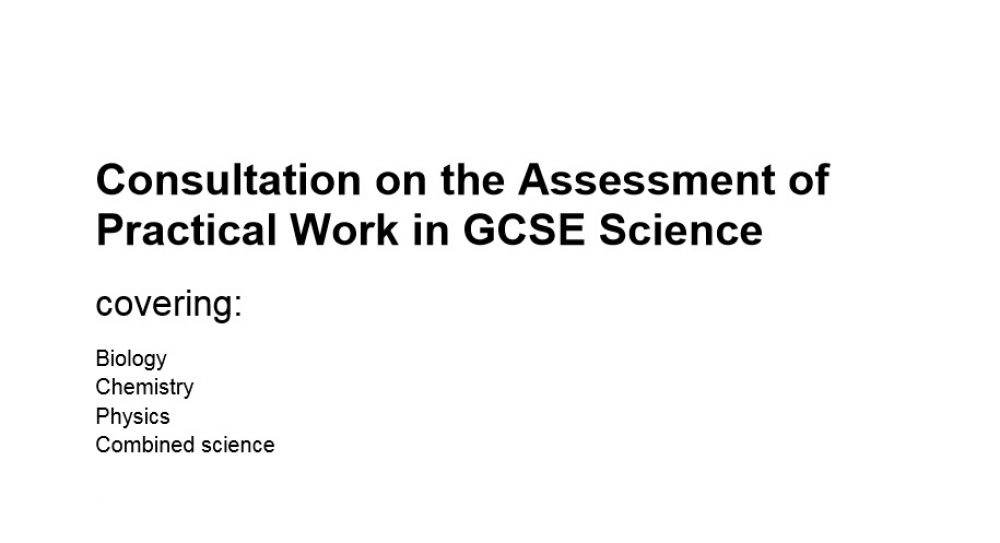GCSE pupils may no longer need to undertake practical controlled assessments for their science exams – but instead their teacher would have to present logbooks to exam boards of up to 16 experiments per pupil.
In a consultation launched today by Ofqual, recommendations include scrapping the controlled assessment of practical work and instead test students on their first-hand knowledge of practicals in 15 per cent of the new science exams.
Currently, more than half a million students take science GCSEs each year with more than one million total entries.
The consultation says: “GCSE specifications would set out the apparatus students should use and the techniques they should develop, together with a minimum of eight practical activities (16 for combined science) they should do during the course using the specified apparatus and techniques.
“Students would each keep a record of their practical work, to be made available to their exam board on request.”
Teachers would then be required to confirm to the exam board that each student has completed practical activities.
The consultation says the changes are due to problems with controlled assessments currently completed by schools: “Like coursework, controlled assessment arrangements do not promote an extensive and positive student experience of practical science, or produce sufficiently reliable results.
“Instead, students are frequently over-familiar with just a few experiments, and their marks are skewed towards the top end of the mark range.
Of the logbooks, the consultation said: “We think these arrangements will be manageable for schools and students. They are realistic.
“Teachers’ time will not be diverted from teaching to assessing (beyond the formative assessment that characterises all good teaching, and confirming the school record) because the practical work will be an integral part of the course of study.
“Students will experience practical work as part of a coherent whole rather than as a one-off, high-stake assessment. Above all we think these arrangements are more likely than others to provide a stimulating and enjoyable practical work experience for students, best suited to the curriculum aims.”
Ofqual’s head of reform Janet Holloway said: “Scientists have repeatedly told Ofqual that what is valuable about science practicals is the opportunity they give to students to practise their bench skills, to help test theoretical concepts and, crucially, to allow them to learn by failing.
“We believe that basing at least 15% of the new science exams on questions that directly solicit students’ first-hand knowledge of practical experiments is a better alternative. That is roughly equivalent to the amount science practicals account for in the current set up.”
Glenys Stacey, Chief Regulator at Ofqual, added: “We want to ensure that students get a rounded experience of science. Science practicals are an essential part of that curriculum. However, as we all know, not all that is valuable in a curriculum is best assessed in an exam.”







Your thoughts